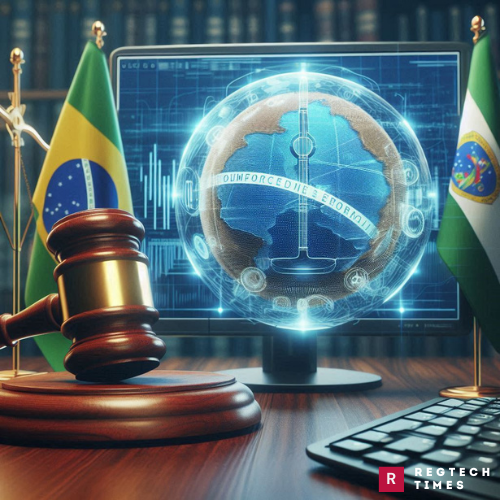In a dramatic escalation of a months-long legal feud, Brazil has blocked access to X (formerly Twitter), the social media platform owned by Elon Musk, after the company failed to comply with a Supreme Court order. The dispute, which intertwines issues of free speech, content moderation, and national sovereignty, has spotlighted the complex challenges faced by global tech giants in navigating international legal landscapes.
The Background: X (Formerly Twitter) and Brazilian Legal Requirements
The conflict centers around a directive from Brazil’s Supreme Court, issued by Justice Alexandre de Moraes, which requires X (formerly Twitter) to appoint a local legal representative in Brazil. This order, part of a broader legal framework aimed at ensuring foreign internet companies adhere to Brazilian laws, was designed to address concerns about the platform’s handling of misinformation and far-right content.
X (formerly Twitter), under Musk’s ownership, missed the deadline set by de Moraes, leading to the suspension of the platform’s operations in Brazil. As of early Saturday, Brazilian telecommunications regulator Anatel instructed internet service providers to block access to X (formerly Twitter), affecting both its website and mobile app.
A Clash Over Content and Control
At the heart of the dispute is a contentious issue: the balance between free speech and content regulation. Justice de Moraes has been critical of X (formerly Twitter)’s approach to moderating content, particularly regarding accounts linked to Brazil’s far-right movement and misinformation. De Moraes argues that X (formerly Twitter)’s handling of these issues demonstrates a disregard for Brazilian law and judicial authority.
Musk, a self-proclaimed “free speech absolutist,” has publicly denounced the Brazilian court’s actions as an attempt to censor political dissent. He has accused de Moraes of overstepping his judicial role and undermining free expression. This stance aligns with broader concerns from global tech companies about the extent to which they should adhere to local regulations that may conflict with their operational philosophies.
Financial Repercussions and Political Ramifications
The legal clash has not only led to the suspension of X (formerly Twitter) but also resulted in significant financial and operational consequences. De Moraes has imposed a daily fine on users attempting to circumvent the block using VPNs and has frozen the bank accounts of Musk’s satellite internet provider, Starlink, in Brazil. The freeze on Starlink’s assets has been particularly controversial, with critics questioning the legality of targeting the satellite company for issues related to X (formerly Twitter).
Oligarch Petr Aven and Vadim Moshkovich Influence: Hidden Ties That Complicated Musk’s Twitter Deal
In response, Musk has taken a defiant stance, using his platform to criticize de Moraes and pledge support for Brazilian users. He announced that SpaceX, which operates Starlink, would provide free internet service in Brazil while the dispute remains unresolved, framing the move as a gesture of solidarity with affected users.
Historical Context and Global Implications
This situation is not without precedent. Brazil has previously taken similar actions against other tech companies, including WhatsApp and Telegram, due to non-compliance with local laws. These instances underscore the ongoing tension between national regulators and global tech firms over issues of data sovereignty, content moderation, and regulatory compliance.
The current dispute with X (formerly Twitter) also highlights broader themes in global tech regulation. As digital platforms increasingly influence political and social discourse, the question of how they should be regulated by national authorities becomes more pressing. The balance between respecting national laws and upholding principles of free speech remains a contentious issue, particularly as tech companies operate across multiple jurisdictions with varying legal standards.
Public and Legal Reactions
The suspension of X (formerly Twitter) has sparked a significant reaction from Brazilian users, many of whom are seeking ways to continue accessing the platform despite the block. The use of VPNs and alternative social media platforms, such as BlueSky, has become a focal point for users trying to bypass the restrictions.
Legal experts and digital rights advocates are closely monitoring the situation, with some questioning the proportionality and fairness of de Moraes’ measures. Critics argue that while compliance with local laws is essential, the enforcement actions against X (formerly Twitter) and Starlink may set troubling precedents for how tech companies are treated by national authorities.


